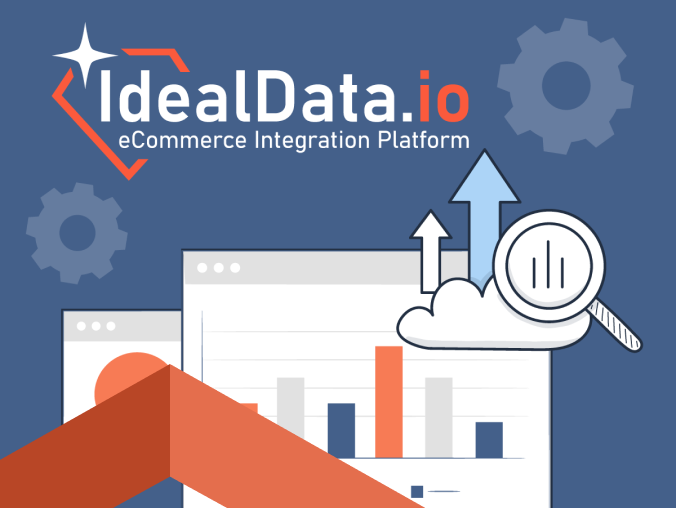CRM for eCommerce: Unlock the Power of Customer Data Analysis
 Rachel Nelson
·
4 minute read
Rachel Nelson
·
4 minute read
Discover how you can use CRM to leverage customer data analysis. This knowledge will help you revolutionize your eCommerce business and drive sales.
Image courtesy Adobe Firefly
Why Customer Data Analysis is Essential for Business Growth
Customer data analysis is essential for business growth because it provides valuable insights into customer behavior, preferences and patterns. By analyzing this data, businesses can gain a deeper understanding of their customers and tailor their strategies accordingly. With customer data analysis, businesses can identify trends, segment their customer base and personalize their marketing and sales efforts. This leads to more effective targeting, higher customer satisfaction, and ultimately, increased sales and revenue.
Furthermore, customer data analysis allows businesses to identify and address any issues or gaps in their products or services. By analyzing customer feedback and purchase history, businesses can make data-driven decisions to improve their offerings and meet customer needs more effectively. This not only boosts customer satisfaction but also helps businesses stay competitive in the ever-changing eCommerce landscape.
Customer data analysis is essential for business growth as it enables businesses to understand their customers better, personalize their marketing efforts and make data-driven decisions to improve their products and services.

Image courtesy Adobe Firefly
Understanding the Different Types of Customer Data
Customer data can be categorized into various types, each providing unique insights into customer behavior and preferences. The different types of customer data include demographic data, transactional data, behavioral data, and psychographic data.
- Demographic data includes information such as age, gender, location, and income level. This type of data helps businesses understand the basic characteristics of their customer base and target specific demographics with tailored marketing campaigns.
- Transactional data refers to data related to customer purchases, such as order history, purchase frequency and average order value. Analyzing transactional data allows businesses to identify customer buying patterns, popular products and cross-selling opportunities.
- Behavioral data tracks customer interactions and engagement with a business, such as website visits, email opens and social media interactions. This data helps businesses understand customer preferences, interests and engagement levels, enabling them to personalize marketing messages and improve customer experiences.
- Psychographic data focuses on customers' attitudes, values, interests and lifestyles. This data provides insights into customers' motivations and preferences, allowing businesses to create targeted marketing campaigns that resonate with their target audience.
By understanding and analyzing these different types of customer data, businesses can gain a comprehensive understanding of their customers and tailor their strategies to effectively meet their needs and preferences.

Image courtesy Adobe Firefly
The Benefits of Using CRM for Customer Data Analysis
Using a CRM (Customer Relationship Management) system for customer data analysis offers numerous benefits for eCommerce businesses. A CRM system allows businesses to gather, organize and analyze customer data in a centralized and efficient manner.
One of the key benefits of using CRM for customer data analysis is improved customer targeting. By leveraging the data stored in a CRM system, businesses can segment their customer base and create targeted marketing campaigns. This ensures that the right message is delivered to the right audience, resulting in higher engagement and conversion rates.
Another benefit is enhanced customer experiences. With a CRM system, businesses can track customer interactions across various touchpoints, enabling them to provide personalized and seamless experiences. By understanding customer preferences and behavior, businesses can deliver relevant content, recommendations and offers, building stronger relationships with their customers.
CRM systems also enable businesses to measure and track the success of their marketing and sales efforts. By analyzing customer data, businesses can identify which strategies are working effectively and which need improvement. This data-driven approach allows businesses to optimize their marketing and sales activities, leading to increased efficiency and ROI.
Overall, using a CRM system for customer data analysis empowers eCommerce businesses to make data-driven decisions, improve customer targeting, enhance customer experiences and optimize marketing and sales strategies.
Using Your CRM to Implement Effective Customer Data Analysis Strategies
To implement effective customer data analysis strategies using a CRM system, businesses should follow a few key steps.
First, businesses need to ensure that the CRM system is properly set up and integrated with relevant data sources. This includes integrating the CRM with the eCommerce platform, email marketing software and other systems that capture customer data. By centralizing all customer data in one place, businesses can easily analyze and derive insights from the data.
Second, businesses should define their goals and objectives for customer data analysis. This involves identifying the key metrics and KPIs (Key Performance Indicators) that will be used to measure the success of the analysis. Whether it's improving customer retention, increasing average order value or identifying cross-selling opportunities, having clear goals in mind will help guide the analysis process.
Next, businesses need to segment their customer base based on relevant criteria, such as demographics, purchase history or engagement levels. This segmentation allows businesses to analyze customer data more effectively and tailor their strategies to specific segments.
Once the customer data is segmented, businesses can start analyzing the data using various techniques, such as RFM analysis (Recency, Frequency, Monetary), cohort analysis or predictive modeling. These techniques help businesses uncover patterns, trends and insights that can inform their marketing and sales strategies.
Finally, businesses should regularly review and update their customer data analysis strategies. Customer preferences and behaviors evolve over time, so it's crucial to continuously analyze and update the strategies to stay relevant and effective.
By following these steps and leveraging a CRM system, businesses can implement effective customer data analysis strategies that drive sales and business growth.

Image courtesy Adobe Firefly
Leveraging Customer Data to Improve Marketing and Sales
Leveraging customer data is crucial for improving marketing and sales efforts in eCommerce businesses. By analyzing customer data, businesses can gain insights that allow them to optimize their marketing campaigns, improve customer targeting and drive sales.
One way to leverage customer data is by personalizing marketing messages and offers. By understanding customer preferences, businesses can create tailored content and promotions that resonate with their target audience. This leads to higher engagement, increased conversions and improved customer satisfaction.
Customer data analysis also helps businesses identify cross-selling and upselling opportunities. By analyzing customer purchase history and preferences, businesses can recommend complementary products or upgrades, increasing the average order value and maximizing revenue.
Furthermore, customer data analysis enables businesses to identify and target high-value customers. By analyzing customer behavior, purchase history and lifetime value, businesses can identify their most valuable customers and develop strategies to retain and upsell to them. This helps drive customer loyalty and long-term revenue growth.
In addition to marketing, customer data analysis can also improve the sales process. By understanding customer preferences and pain points, businesses can tailor their sales approach and provide personalized recommendations and solutions. This enhances the customer experience and increases the likelihood of closing a sale.
Overall, leveraging customer data to improve marketing and sales is essential for eCommerce businesses to stay competitive and drive growth. By understanding customer behavior, preferences and needs, businesses can create targeted campaigns, optimize their sales process, and ultimately, increase revenue.




